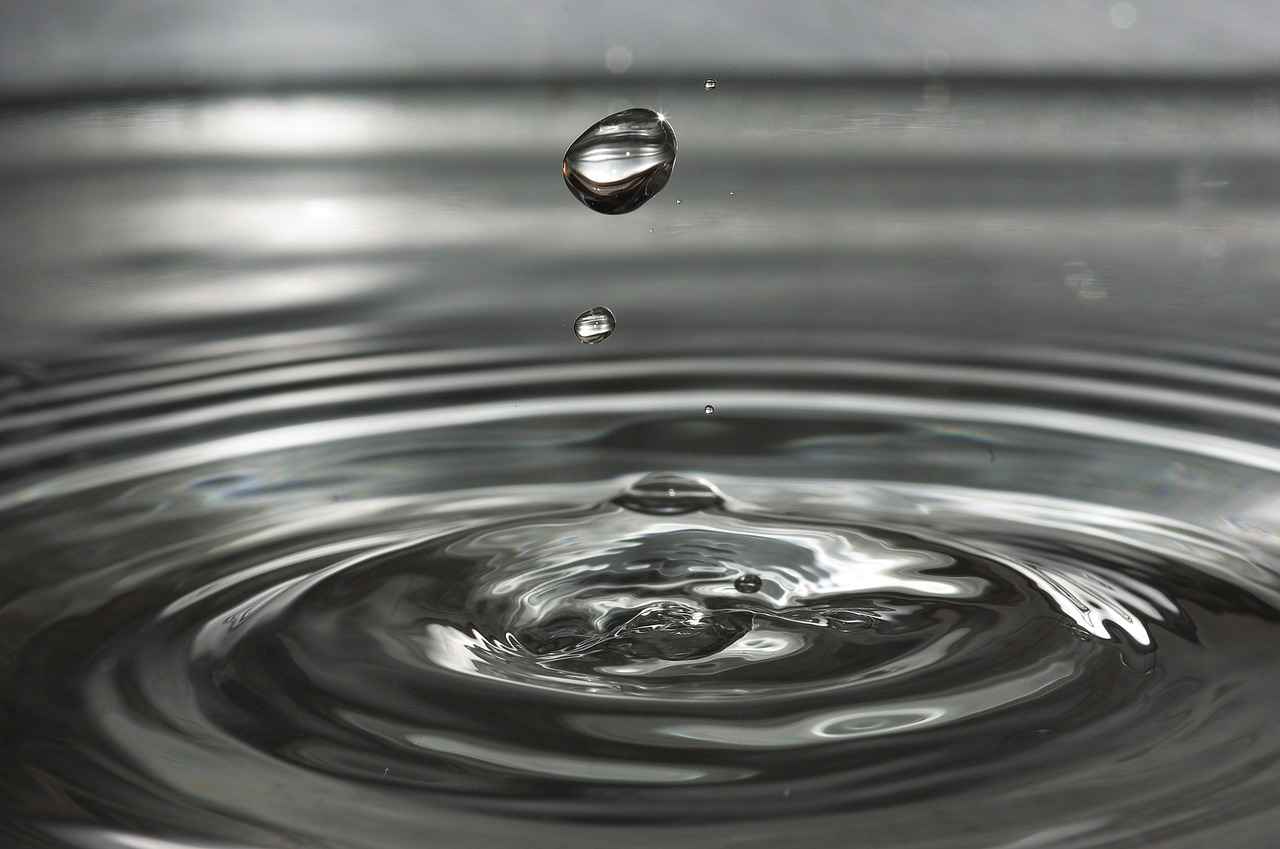Water-only fasting is a dietary practice that involves abstaining from all food and caloric beverages while consuming only water for a specified duration. This approach has been utilized for centuries, often for health, spiritual, or detoxification purposes. In this article, we will delve into the various aspects of water-only fasting, including its benefits, potential risks, and practical guidelines for those considering this method.
What is Water-Only Fasting?
Water-only fasting is a form of fasting where individuals consume nothing but water. This practice encourages the body to enter a state of ketosis, where it begins to use stored fat for energy. Historically, many cultures have embraced fasting for its perceived health benefits, including enhanced mental clarity and spiritual growth.
Health Benefits of Water-Only Fasting
Many advocates of water-only fasting claim it offers a range of health benefits. Here are some of the most commonly cited advantages:
- Weight Loss: One of the primary reasons individuals turn to water-only fasting is for weight loss. By significantly reducing caloric intake, the body begins to utilize its fat reserves for energy.
- Detoxification: Fasting allows the body to focus on detoxification, helping to eliminate toxins and promote cellular repair.
- Improved Insulin Sensitivity: Research indicates that water-only fasting may enhance insulin sensitivity, which is vital for maintaining balanced blood sugar levels.
Potential Risks and Side Effects
While water-only fasting can be beneficial, it is essential to consider the potential risks:
- Dehydration: Prolonged fasting can lead to dehydration, especially if water intake is insufficient.
- Nutrient Deficiencies: Extended periods without food can result in deficiencies of essential vitamins and minerals.
- Physical and Mental Side Effects: Common side effects include fatigue, dizziness, and irritability, which can affect one’s ability to function normally.
How to Prepare for Water-Only Fasting
Preparation is crucial for a successful water-only fast. Here are some guidelines:
- Gradual Food Reduction: Prior to starting your fast, gradually decrease your food intake over several days. This can help your body adjust and minimize discomfort.
- Stay Hydrated: Ensure you are well-hydrated before and during the fast by drinking plenty of water.
Breaking a Water-Only Fast Safely
How you break a water-only fast is just as important as the fasting period itself:
- Reintroduce Food Gradually: Start with small, easily digestible meals to help your body adjust to food intake again.
- Choose Nutrient-Dense Foods: Opt for foods rich in nutrients to replenish what your body may have missed during the fast.
In conclusion, water-only fasting can be a powerful tool for health and wellness when approached with caution and preparation. Understanding the benefits and risks, along with following proper guidelines, can help individuals embark on their fasting journey safely and effectively.

What is Water-Only Fasting?
Water-only fasting is a dietary practice that entails consuming nothing but water for a predetermined duration. This form of fasting has been embraced for centuries, often for both health and spiritual reasons. It is essential to understand the nuances of this fasting method, as it can have profound effects on the body and mind.
During a water-only fast, individuals abstain from all food and caloric beverages, relying solely on water to sustain themselves. This practice can range from a short 24-hour fast to extended periods lasting several days. The reasons for engaging in water-only fasting can vary widely, from seeking detoxification benefits to promoting spiritual clarity.
Historically, water-only fasting has been utilized in various cultures and religions as a means of purification and self-discipline. Many believe that this fasting method can lead to a deeper understanding of oneself and a heightened sense of awareness.
In modern times, interest in water-only fasting has surged, particularly among those looking to improve their health and well-being. The practice is often associated with numerous health benefits, including weight loss, improved metabolic health, and enhanced detoxification processes.
- Weight Loss: One of the primary motivations for many individuals is the potential for significant weight loss. By eliminating caloric intake, the body shifts to burning stored fat for energy, which can lead to noticeable weight reduction.
- Improved Metabolic Health: Research indicates that water-only fasting may improve insulin sensitivity, which is vital for maintaining healthy blood sugar levels.
- Cellular Repair: Fasting allows the body to focus on repairing and regenerating cells, which may enhance overall health.
However, it is crucial to approach water-only fasting with caution. While there are numerous benefits, potential risks exist, especially for individuals with pre-existing health conditions. Extended fasting can lead to dehydration and nutrient deficiencies, as essential vitamins and minerals are not consumed during this period.
Moreover, some individuals may experience physical and mental side effects, such as fatigue, dizziness, and irritability. Being aware of these potential issues can help individuals prepare adequately for their fasting experience.
Preparation is a critical aspect of a successful water-only fast. It is advisable to gradually reduce food intake leading up to the fast, allowing the body to adjust more comfortably. Staying hydrated before and during the fast is also essential to prevent dehydration.
When the fasting period concludes, how one breaks the fast is equally important. It is recommended to reintroduce food gradually, starting with small, easily digestible meals. Opting for nutrient-dense foods can help replenish essential vitamins and minerals, supporting overall health post-fasting.
In summary, water-only fasting is a powerful practice with deep historical roots. While it offers various health benefits, it is essential to approach it with care and preparation to maximize its advantages while minimizing potential risks.

Health Benefits of Water-Only Fasting
Water-only fasting has garnered attention in recent years, with many individuals exploring its potential health benefits. This dietary approach, which involves consuming only water for a designated period, is believed to support various aspects of health, including weight loss, detoxification, and enhanced metabolic health. By understanding these benefits, individuals can make informed choices about incorporating fasting into their lifestyle.
One of the most significant advantages touted by proponents of water-only fasting is its ability to facilitate weight loss. When caloric intake is drastically reduced, the body is compelled to utilize its stored fat for energy, leading to weight reduction. This process is particularly effective due to the creation of a caloric deficit, which occurs when the body expends more calories than it consumes.
Additionally, research suggests that water-only fasting may positively impact insulin sensitivity. Improved insulin sensitivity is essential for maintaining healthy blood sugar levels and can reduce the risk of developing type 2 diabetes. By allowing the body to reset its metabolic processes, fasting can enhance overall metabolic health.
Another compelling benefit of water-only fasting is its potential role in detoxification. During fasting, the body can focus on cellular repair and regeneration. This process allows for the elimination of toxins and promotes overall health and well-being. By giving the digestive system a break, the body can redirect its energy towards healing and maintenance.
While the advantages of water-only fasting are noteworthy, it is crucial to acknowledge potential risks and side effects. Extended fasting can lead to dehydration and nutrient deficiencies, particularly if not approached with care. Individuals with pre-existing health conditions or those who are pregnant should exercise caution and consult healthcare professionals before embarking on a fasting journey.
Physical and mental side effects may also arise during fasting. Some individuals report experiencing fatigue, dizziness, or irritability. Understanding these potential challenges can help individuals prepare for their fasting experience and mitigate discomfort.
Preparation is vital for a successful water-only fast. One effective strategy is to gradually reduce food intake over several days. This practice not only helps minimize discomfort but also prepares the body for the fasting period. Staying hydrated before and during the fast is equally important, as adequate hydration supports overall health and aids in the fasting process.
Equally important is the way one breaks a water-only fast. A careful approach can help avoid digestive discomfort and promote better nutrient absorption. After completing a fast, it is advisable to reintroduce food slowly. Starting with small, easily digestible meals allows the body to adjust without overwhelming the digestive system.
Choosing nutrient-dense foods when breaking a fast can replenish essential vitamins and minerals, supporting overall health and well-being post-fasting. Foods rich in nutrients, such as fruits, vegetables, and whole grains, can help restore the body’s balance after a fasting period.
In conclusion, water-only fasting presents many potential health benefits, including weight loss, detoxification, and improved metabolic health. However, it is essential to approach this practice with awareness of its risks and to prepare adequately for both the fasting and refeeding phases. By doing so, individuals can maximize the benefits while minimizing potential drawbacks.
Weight Loss and Metabolic Benefits
Water-only fasting has gained popularity as an effective method for weight loss and metabolic enhancement. This approach to fasting involves abstaining from all food and caloric beverages, relying solely on water for sustenance over a designated period. One of the most significant advantages of this fasting method is its potential for substantial weight loss.
When an individual engages in water-only fasting, the body enters a state of caloric deficit. This occurs because the body begins to utilize its stored fat as a primary energy source, leading to noticeable weight reduction. The mechanism behind this process is straightforward: by not consuming calories, the body must tap into its fat reserves to maintain energy levels. As a result, individuals often experience a decrease in body weight, which can be both motivating and beneficial for overall health.
Moreover, the effects of water-only fasting extend beyond mere weight loss. During this fasting period, the body undergoes various metabolic changes that can improve overall health. One of the key metabolic benefits is the potential enhancement of insulin sensitivity. Improved insulin sensitivity is crucial for regulating blood sugar levels and can significantly reduce the risk of developing type 2 diabetes. When the body becomes more sensitive to insulin, it can effectively manage glucose levels, preventing spikes and crashes that can lead to cravings and overeating.
In addition to weight loss and improved insulin sensitivity, water-only fasting can also promote cellular repair and detoxification. During fasting, the body can redirect its energy from digestion to repair and regeneration processes. This shift allows for the elimination of toxins and damaged cells, which can enhance overall health and well-being. The combination of weight loss and these metabolic benefits makes water-only fasting an appealing option for many individuals seeking to improve their health.
However, it is essential to approach water-only fasting with caution. While the benefits are significant, individuals should be aware of the potential risks associated with extended fasting periods. Dehydration and nutrient deficiencies can occur if the fast is not managed properly, particularly for those with pre-existing health conditions. Therefore, it is advisable to consult with a healthcare professional before embarking on a water-only fasting journey.
In conclusion, water-only fasting offers a unique approach to weight loss and metabolic health. By creating a caloric deficit and promoting beneficial metabolic changes, individuals can achieve their weight loss goals while improving their overall health. As with any dietary change, understanding the benefits and risks is crucial for a successful fasting experience.
Caloric Deficit Explained
A caloric deficit is a fundamental concept in weight management, referring to a state where the body expends more calories than it takes in through food and drink. This discrepancy forces the body to utilize its energy reserves, primarily stored fat, to meet its energy demands. Understanding how this process works is crucial for anyone looking to achieve weight loss or improve their overall health.
When a person engages in a water-only fast, they significantly reduce their caloric intake, creating a substantial caloric deficit. This method has gained popularity as an effective strategy for weight loss. During fasting, the body shifts its energy sources from glucose derived from food to fat stores, leading to a decrease in body weight over time.
How is Caloric Deficit Achieved?
- Understanding Basal Metabolic Rate (BMR): The BMR represents the number of calories your body needs to maintain basic physiological functions at rest. Factors such as age, gender, weight, and muscle mass influence BMR.
- Daily Caloric Needs: To determine your daily caloric needs, consider your activity level. Sedentary individuals require fewer calories than those who are very active.
- Creating a Deficit: A caloric deficit can be achieved through dietary changes, increased physical activity, or a combination of both. For instance, reducing daily caloric intake by 500 calories can lead to approximately one pound of weight loss per week.
The Role of Water-Only Fasting in Achieving a Caloric Deficit
Water-only fasting, as a method of achieving a caloric deficit, can be particularly effective due to its simplicity. By eliminating all food and caloric beverages, individuals often find it easier to restrict their caloric intake. The body, in response to this lack of calories, begins to utilize fat stores for energy, which can lead to significant weight loss.
Moreover, this fasting method can also induce a state of ketosis, where the body burns fat for fuel instead of carbohydrates. This metabolic shift not only aids in weight loss but also has been linked to other health benefits, such as improved insulin sensitivity and reduced inflammation.
Considerations and Recommendations
While water-only fasting can create a significant caloric deficit, it is essential to approach this method with caution. Extended fasting periods may lead to potential health risks, including nutrient deficiencies and dehydration. It is advisable to consult a healthcare professional before embarking on such a fasting regimen, especially for individuals with pre-existing health conditions.
Additionally, it is crucial to maintain proper hydration throughout the fasting period. Drinking adequate amounts of water supports bodily functions and helps mitigate some of the side effects associated with fasting, such as headaches and fatigue.
In conclusion, understanding the mechanics of a caloric deficit and the role of water-only fasting can empower individuals to make informed choices about their weight loss journeys. By creating a caloric deficit, whether through fasting or dietary modifications, individuals can achieve their health and wellness goals effectively.
Potential Impact on Insulin Sensitivity
Insulin sensitivity plays a vital role in our overall health, particularly in regulating blood sugar levels. Research indicates that engaging in water-only fasting may significantly enhance insulin sensitivity, which is essential for preventing conditions such as type 2 diabetes.
When the body undergoes a water-only fast, it enters a state of metabolic adaptation. This process allows the body to utilize fat stores for energy instead of relying on carbohydrates from food. As a result, insulin levels decrease, and the body becomes more efficient at utilizing insulin. A study published in the journal Diabetes Care found that intermittent fasting, which includes water-only fasting, can lead to improved insulin action and lower blood glucose levels.
During fasting, the pancreas has a chance to rest from producing insulin continuously. This break can help reset the body’s insulin response, making it more effective when food is reintroduced. Additionally, water-only fasting may promote the production of ketones, which are beneficial for brain function and can further enhance insulin sensitivity.
Moreover, water-only fasting can lead to a reduction in inflammation, another factor linked to insulin resistance. Chronic inflammation has been shown to impair insulin signaling, leading to elevated blood sugar levels. By reducing inflammation through fasting, individuals may experience a more favorable metabolic environment.
- Improved Fat Metabolism: Water-only fasting encourages the body to burn fat for energy, which can help reduce visceral fat associated with insulin resistance.
- Hormonal Balance: Fasting can help regulate hormones that influence insulin sensitivity, including glucagon and cortisol.
- Cellular Repair: The fasting period allows for cellular repair processes that can enhance metabolic health.
However, it is essential to approach water-only fasting with caution. Individuals with existing health conditions, particularly those related to blood sugar regulation, should consult healthcare professionals before starting a fasting regimen. Monitoring blood sugar levels during fasting is crucial to ensure safety and effectiveness.
In conclusion, the potential impact of water-only fasting on insulin sensitivity is promising. By improving insulin response, reducing inflammation, and promoting fat metabolism, fasting can be a powerful tool for enhancing metabolic health. As more research emerges, individuals interested in this dietary approach should remain informed and consider their unique health circumstances.
Detoxification and Cellular Repair
are vital processes that can significantly influence overall health and well-being. Many individuals are increasingly turning to fasting as a means to promote these processes, particularly through water-only fasting. This article delves into how fasting can facilitate detoxification and enhance cellular repair, ultimately contributing to a healthier lifestyle.
Fasting, particularly when limited to water, allows the body to shift its focus from digestion to cellular repair and regeneration. When food intake is restricted, the body initiates a series of metabolic changes that promote healing and detoxification at the cellular level. This is primarily due to a state known as autophagy, where cells break down and remove damaged components, thus rejuvenating themselves.
During fasting, the body enters a state of ketosis, where it begins to utilize fat stores for energy instead of glucose. This process not only aids in weight loss but also enhances detoxification. As fat is metabolized, stored toxins that have accumulated in fatty tissues are released into the bloodstream, where they can be processed and eliminated by the liver and kidneys. This detoxification can lead to improved organ function and overall vitality.
Moreover, fasting has been shown to reduce inflammation, a key contributor to many chronic diseases. By lowering inflammatory markers, the body can focus on repairing damaged tissues and cells, further promoting health. Research indicates that fasting may also enhance the production of growth hormones, which play a critical role in tissue growth and repair.
In addition to physical benefits, fasting can have profound effects on mental clarity and emotional well-being. Many who practice water-only fasting report a heightened sense of focus and improved mood, likely due to the reduction of inflammation and the release of endorphins during the fasting process.
However, it is essential to approach fasting with caution. While the detoxification and cellular repair benefits are compelling, individuals should be aware of potential side effects. Extended fasting can lead to nutrient deficiencies and dehydration, which may counteract the positive effects of fasting. Therefore, it is crucial to prepare adequately and consult with a healthcare professional before embarking on a prolonged fast.
To maximize the benefits of detoxification and cellular repair during fasting, consider the following practical insights:
- Stay Hydrated: Ensure adequate water intake to support kidney function and flush out toxins.
- Listen to Your Body: Pay attention to how you feel during fasting; if you experience severe discomfort, it may be wise to break the fast.
- Gradual Reintroduction of Food: After fasting, reintroduce food slowly to allow your digestive system to adjust and to maximize nutrient absorption.
In conclusion, fasting can be a powerful tool for promoting detoxification and enhancing cellular repair. By allowing the body to focus on these critical processes, individuals may experience not only physical health improvements but also mental clarity and emotional balance. As with any dietary approach, it is essential to proceed with caution and make informed decisions based on individual health needs.

Potential Risks and Side Effects
Water-only fasting can be a powerful tool for health and wellness, but it is crucial to understand the associated with this practice. While many individuals may benefit from fasting, certain populations need to approach this dietary method with caution.
Water-only fasting involves abstaining from all food and caloric beverages, consuming only water for a predetermined duration. This method can lead to significant health benefits, but it also poses risks, especially for those with pre-existing health conditions or specific life circumstances, such as pregnancy.
- Individuals with Chronic Illnesses: Those suffering from conditions like diabetes, heart disease, or kidney issues may face serious complications during fasting. For example, diabetic patients might experience dangerous fluctuations in blood sugar levels.
- Pregnant or Nursing Women: Fasting can deprive both the mother and the developing fetus or infant of essential nutrients, potentially leading to adverse health outcomes.
One of the most immediate risks of water-only fasting is dehydration. Although the individual is consuming water, prolonged fasting can lead to an imbalance in electrolytes, particularly if the fast extends beyond a few days. Symptoms of dehydration may include:
- Dizziness
- Dry mouth and skin
- Fatigue
- Headaches
Extended fasting can result in nutrient deficiencies as the body is deprived of essential vitamins and minerals typically obtained from food. Over time, this can lead to:
- Weakened immune function
- Muscle loss
- Bone density issues
Many individuals report experiencing various physical and mental side effects during water-only fasting. Common issues include:
- Fatigue: A lack of caloric intake can lead to low energy levels.
- Irritability: Mood swings may occur due to low blood sugar levels.
- Concentration Problems: Some people find it challenging to focus when fasting.
After a prolonged fast, reintroducing food too quickly can lead to refeeding syndrome, a potentially fatal condition characterized by severe electrolyte imbalances. This syndrome occurs when the body begins to process food again, leading to shifts in fluids and electrolytes. Symptoms may include:
- Confusion
- Seizures
- Heart failure
Before embarking on a water-only fast, it is highly advisable to consult with a healthcare professional, especially for those with underlying health conditions or concerns. A medical expert can provide tailored advice and ensure that fasting is done safely and effectively.
In summary, while water-only fasting can offer numerous health benefits, it is vital to remain aware of the potential risks involved. By understanding these risks, individuals can make informed decisions and take necessary precautions to ensure a safe fasting experience.
Dehydration and Nutrient Deficiency
are significant concerns for individuals considering or engaging in extended periods of water-only fasting. While this practice may offer certain health benefits, it is crucial to understand the potential risks associated with inadequate nutrient intake and hydration.
During water-only fasting, the body is deprived of all food sources, which means it also misses out on vital nutrients such as vitamins, minerals, and proteins. These nutrients are essential for maintaining various bodily functions, including immune response, energy production, and cellular repair. Over time, the absence of these nutrients can lead to serious health issues.
Understanding Dehydration
- Dehydration occurs when the body loses more fluids than it takes in, leading to an imbalance that can affect bodily functions.
- Even though water is consumed during a water-only fast, the lack of food may cause the body to use stored fluids more rapidly, increasing the risk of dehydration.
- Symptoms of dehydration can include dry mouth, fatigue, dizziness, and confusion. In severe cases, it can lead to kidney damage or other serious health complications.
Nutrient Deficiency Explained
- Essential nutrients like vitamin C, calcium, and iron are often lacking during prolonged fasting periods.
- Deficiencies can manifest in various ways, from fatigue and muscle weakness to more severe conditions like anemia or weakened bone density.
- Individuals may also experience a compromised immune system, making them more susceptible to infections and illnesses.
Recognizing Symptoms of Nutritional Deficiencies
- Fatigue and lethargy are common signs that the body is not receiving enough nutrients.
- Skin issues, such as rashes or dryness, can indicate a lack of essential fatty acids and vitamins.
- Digestive problems, including constipation or bloating, may arise from insufficient fiber intake.
Mitigating Risks
To minimize the risks of dehydration and nutrient deficiency during a water-only fast, individuals should consider the following:
- Consult a Healthcare Professional: It is advisable to seek guidance from a healthcare provider before embarking on a prolonged fast, especially for those with underlying health conditions.
- Monitor Hydration: Regularly drinking water and paying attention to thirst signals is crucial. Adding electrolytes can also help maintain fluid balance.
- Limit Duration: Shorter fasting periods may be more beneficial and less risky than extended fasts. Consider intermittent fasting as an alternative.
In conclusion, while water-only fasting may offer certain health benefits, it is essential to approach this practice with caution. Understanding the risks associated with dehydration and nutrient deficiency can help individuals make informed decisions and safeguard their health during fasting.
Physical and Mental Side Effects
Water-only fasting is a practice that many individuals explore for its potential health benefits. However, it is crucial to recognize that this dietary approach can lead to a variety of . Understanding these effects can help individuals prepare adequately and make informed decisions about their fasting experience.
During a water-only fast, the body undergoes significant physiological changes. Some individuals may encounter fatigue, which can manifest as a general sense of tiredness or lack of energy. This fatigue is often due to the body’s adaptation to a lack of caloric intake, as it shifts from using glucose for energy to utilizing stored fat. Dizziness is another common side effect, often resulting from fluctuations in blood sugar levels and dehydration. It is essential to stay well-hydrated, as even mild dehydration can exacerbate feelings of dizziness.
Moreover, irritability can be a notable mental side effect during fasting. The absence of food can lead to mood swings and increased emotional sensitivity, often referred to as “hanger” (hunger-induced anger). This irritability can be distressing not only for the individual fasting but also for those around them. Recognizing these potential mood changes can help individuals prepare mentally for the challenges they may face during their fast.
To mitigate these side effects, individuals can take several proactive steps:
- Stay Hydrated: Drinking adequate amounts of water can help alleviate dizziness and fatigue. Aim for at least 2-3 liters of water daily.
- Monitor Activity Levels: Reducing physical exertion during the fasting period may help conserve energy and reduce feelings of fatigue.
- Mindfulness Practices: Engaging in mindfulness or meditation can help manage irritability and improve mood stability during fasting.
It’s also important to note that individuals with pre-existing health conditions, such as diabetes or cardiovascular issues, should approach water-only fasting with caution. Consulting with a healthcare professional before starting a fast can provide personalized guidance and ensure safety.
In summary, while water-only fasting can offer various health benefits, it is not without its challenges. Being aware of potential physical and mental side effects, including fatigue, dizziness, and irritability, can help individuals prepare more effectively for their fasting journey. By staying hydrated, moderating activity levels, and practicing mindfulness, individuals can navigate these challenges more successfully and enhance their overall fasting experience.

How to Prepare for Water-Only Fasting
Preparation is essential for a successful water-only fast. The journey into fasting can be challenging, but with the right approach, it can become a transformative experience. One of the most effective strategies is to gradually reduce food intake while ensuring proper hydration. This method not only eases the transition but also sets the stage for a more comfortable fasting period.
Gradual Food Reduction
Before embarking on a water-only fast, it is highly recommended to gradually decrease your food intake over the course of several days. This process allows your body to adjust to the upcoming changes, minimizing discomfort and potential side effects. Start by eliminating processed foods, sugars, and heavy meals, focusing instead on lighter options such as fruits and vegetables. This will help your digestive system ease into a state of fasting.
Additionally, consider the following steps to facilitate a smoother transition:
- Day 1-2: Begin with a diet rich in whole foods, reducing portion sizes.
- Day 3-4: Eliminate solid foods and switch to smoothies or broths.
- Day 5: Transition to only water, allowing your body to adapt fully.
Staying Hydrated
Hydration is a critical component of fasting preparation. Before and during your water-only fast, it is vital to drink plenty of water. Proper hydration helps to prevent dehydration, which can be a significant risk during fasting. Aim for at least 8-10 glasses of water daily in the days leading up to your fast. This will not only keep your body hydrated but also help to flush out toxins, making the fasting process more effective.
It can also be beneficial to incorporate electrolyte-rich beverages, such as coconut water or mineral water, to maintain electrolyte balance. However, be cautious to avoid any drinks with added sugars or calories, as they can interfere with the fasting process.
Listening to Your Body
As you prepare for your water-only fast, it is essential to listen to your body. Pay attention to how you feel during the gradual reduction of food. If you experience significant discomfort or fatigue, consider adjusting your approach. Everyone’s body reacts differently to fasting, and being attuned to your needs can help you navigate the process more effectively.
Consulting a Healthcare Professional
Before starting any fasting regimen, especially a water-only fast, it is advisable to consult with a healthcare professional. This is particularly important for individuals with pre-existing health conditions, pregnant women, or those taking medications. A healthcare provider can offer personalized advice and ensure that fasting is a safe option for you.
Setting Goals and Intentions
Finally, take some time to set clear goals and intentions for your water-only fast. Whether your aim is to detoxify your body, lose weight, or gain mental clarity, having a clear purpose can enhance your commitment and motivation throughout the fasting period. Consider journaling your thoughts and feelings before you begin, which can help you reflect on your journey and measure your progress.
By following these preparatory steps, you can create a solid foundation for your water-only fasting experience. Remember, the key to a successful fast lies not only in the act of abstaining from food but also in how well you prepare your body and mind for the journey ahead.
Gradual Food Reduction
When embarking on a water-only fast, one of the most critical steps is the gradual reduction of food intake. This preparatory phase is essential for minimizing discomfort and effectively preparing the body for the fasting period ahead. Sudden changes in diet can lead to unpleasant side effects, making a gradual transition not just advisable but necessary for a smoother fasting experience.
To begin the process, consider starting with a three to five-day plan that allows your body to adjust gradually. This approach can significantly reduce the likelihood of experiencing symptoms such as headaches, fatigue, or irritability, which are common when abruptly stopping food intake.
- Day 1: Begin by eliminating heavy foods such as red meats, fried items, and processed snacks. Focus on lighter meals that include fruits, vegetables, and whole grains. This will help your digestive system ease into the transition.
- Day 2: Continue to reduce your portion sizes and incorporate more liquids into your diet. Herbal teas and broths can be beneficial here, as they provide hydration and essential nutrients without overwhelming your system.
- Day 3: Aim to consume only fruits and vegetables. These foods are high in water content and will help your body stay hydrated while preparing for the fast.
- Day 4: On this day, consider eating only raw fruits and vegetables, or even limiting yourself to smoothies. This can help your body further acclimate to a low-calorie intake.
- Day 5: Finally, transition to water-only for the duration of your fast. By this point, your body should be more prepared to handle the absence of solid food.
Throughout this process, it is crucial to stay hydrated. Drinking plenty of water during your gradual reduction phase not only aids in digestion but also helps to flush out toxins from your body. Aim for at least 8-10 glasses of water daily to maintain optimal hydration levels.
Another important aspect of preparing for a water-only fast is to listen to your body. If you experience significant discomfort during the gradual reduction phase, it may be a sign to slow down the process or consult with a healthcare professional. Each individual’s body reacts differently, and being in tune with your needs is vital.
Additionally, consider incorporating light physical activity, such as walking or yoga, to help your body adjust to the changes. Gentle exercise can stimulate digestion and promote overall well-being, making the transition to fasting more manageable.
In summary, the gradual reduction of food intake is a fundamental step in preparing for a water-only fast. By easing into the fasting process, staying hydrated, and paying attention to your body’s signals, you can enhance your overall fasting experience and minimize potential side effects. This thoughtful approach not only prepares your body for the fast but also sets the stage for a more successful and beneficial fasting journey.
Staying Hydrated
Staying hydrated is a fundamental aspect of maintaining health, particularly when engaging in practices such as water-only fasting. The importance of hydration cannot be overstated, as it plays a critical role in various bodily functions and can significantly impact the fasting experience.
During a water-only fast, the body relies solely on water for sustenance. This means that it is essential to consume plenty of water before and throughout the fasting period. Proper hydration helps to mitigate the risk of dehydration, which can lead to several negative side effects, including fatigue, dizziness, and headaches. Therefore, ensuring adequate fluid intake is vital for both physical and mental well-being.
Additionally, staying hydrated supports various physiological processes. Water is crucial for regulating body temperature, maintaining electrolyte balance, and facilitating nutrient transport. When fasting, the body undergoes metabolic changes, and hydration helps to support these changes efficiently. It is important to remember that even mild dehydration can impair cognitive function and physical performance, making it essential to prioritize hydration during fasting.
To effectively maintain hydration, consider the following practical tips:
- Start Early: Begin hydrating well before the fasting period. This prepares your body and ensures you enter the fast with sufficient fluid levels.
- Set Reminders: Use reminders to drink water regularly throughout the day, especially if you tend to forget.
- Flavor Your Water: If plain water feels monotonous, consider adding slices of lemon, cucumber, or mint to enhance the flavor without adding calories.
- Monitor Your Intake: Keep track of how much water you are consuming. Aim for at least 8-10 glasses per day, adjusting based on your individual needs and activity level.
Moreover, it is essential to recognize that hydration needs can vary from person to person. Factors such as age, activity level, and climate can influence how much water one should drink. Listening to your body and adjusting your intake accordingly can help ensure optimal hydration.
In conclusion, staying hydrated before and during a water-only fast is crucial for overall health and well-being. By prioritizing hydration, individuals can enhance their fasting experience, minimize potential side effects, and support their body’s natural processes. Remember, water is not just a thirst-quencher; it is a vital component of a successful fasting journey.

Breaking a Water-Only Fast Safely
is crucial for maintaining the benefits gained during the fasting period. The way you reintroduce food can significantly affect your digestive system and overall well-being. Following a structured approach will help minimize discomfort and enhance nutrient absorption, allowing your body to adapt smoothly to the transition back to solid foods.
When you complete a water-only fast, your digestive system has been inactive for an extended period. This inactivity can lead to a heightened sensitivity to food, making it essential to approach the refeeding phase carefully. A gradual reintroduction of food helps in avoiding digestive distress, such as bloating or cramping, and aids in the absorption of nutrients.
- Start with Liquids: Initially, focus on clear liquids such as broths or diluted fruit juices. This gentle approach helps rehydrate your body and prepares your digestive system for solid foods.
- Introduce Soft Foods: After a day or two of liquids, incorporate soft, easily digestible foods. Options like steamed vegetables, mashed potatoes, or puréed soups can be beneficial.
- Gradually Add Solid Foods: Once your body adjusts, slowly reintroduce solid foods. Begin with small portions of whole foods such as fruits, vegetables, and lean proteins.
When breaking your fast, it’s essential to opt for nutrient-dense foods that provide essential vitamins and minerals. Foods rich in fiber, healthy fats, and proteins will support your body’s recovery:
- Fruits and Vegetables: These are high in vitamins, minerals, and fiber, which can aid digestion.
- Whole Grains: Foods like brown rice or quinoa can provide energy and nutrients.
- Lean Proteins: Incorporating sources like chicken, fish, or legumes can help repair tissues and promote muscle recovery.
As you break your fast, it’s vital to listen to your body. Pay attention to how you feel after consuming different foods. If you experience discomfort, consider reverting to liquids or softer foods until your digestive system stabilizes.
Throughout the refeeding process, maintaining adequate hydration is essential. Continue to drink plenty of water to support digestion and overall health. Staying hydrated can also help mitigate any potential side effects from reintroducing food.
Keep track of how your body responds to different foods. This monitoring will help you identify which foods are best tolerated and which may cause discomfort. Over time, you will learn how to best nourish your body post-fast.
If you have specific health concerns or conditions, consider consulting a healthcare professional or a nutritionist before starting or breaking a fast. They can provide personalized advice and help ensure a safe and effective fasting experience.
In summary, breaking a water-only fast requires careful planning and awareness. By following a structured approach, choosing the right foods, and listening to your body, you can enhance your recovery and enjoy the benefits of your fasting experience.
Reintroducing Food Gradually
After completing a water-only fast, the way you reintroduce food is crucial for a smooth transition back to regular eating. The body has undergone significant changes during the fasting period, and it is essential to approach post-fast nutrition with care. This section focuses on the importance of gradually reintroducing food and provides practical guidelines to ensure a safe and effective process.
Initially, your digestive system may be sensitive after a prolonged period without food. Therefore, it is advisable to start with small portions of easily digestible foods. This approach allows your body to adjust gradually and minimizes the risk of discomfort or digestive issues.
- Broths and Soups: Begin with clear broths or vegetable soups that are low in fat and high in hydration. These options are gentle on the stomach and can help ease the digestive system back into action.
- Fruits and Vegetables: Soft fruits like bananas or applesauce and steamed vegetables are excellent choices for the first few meals. They provide essential nutrients without overwhelming the digestive tract.
- Whole Grains: Gradually incorporate whole grains like oatmeal or brown rice. These foods are not only nutritious but also provide fiber, which is beneficial for digestion.
As you begin to feel more comfortable with these initial foods, you can slowly introduce other items into your diet. It’s important to listen to your body and pay attention to how it responds. If you experience any discomfort, consider reverting to simpler foods until your body adjusts.
Another critical aspect of breaking a fast is staying hydrated. While you will be consuming food, continuing to drink plenty of water is vital. This helps to maintain hydration levels and supports the digestive process. Herbal teas can also be a soothing addition during this phase.
Moreover, focus on nutrient-dense foods as you progress. Incorporating lean proteins, healthy fats, and a variety of vitamins and minerals will help replenish your body’s nutrient stores. Foods like eggs, fish, avocados, and nuts are excellent choices that can provide essential nutrients without causing digestive distress.
Additionally, it is advisable to avoid heavy, rich, or processed foods for at least a few days after the fast. These foods can be taxing on the digestive system and may lead to discomfort or gastrointestinal issues. Instead, prioritize whole, unprocessed foods that are easier for your body to break down and absorb.
Finally, consider keeping a food journal during this transition. Recording what you eat and how your body reacts can help you identify any potential triggers or foods that may not sit well with you. This practice can also guide you in making informed choices as you continue to reintroduce a broader variety of foods into your diet.
In summary, breaking a water-only fast requires a thoughtful approach. By , starting with small, easily digestible meals, and focusing on nutrient-dense options, you can support your body’s recovery and enhance your overall well-being.
Choosing Nutrient-Dense Foods
When it comes to breaking a water-only fast, the choice of food is paramount. After a period of abstaining from all solid foods, your body is primed to receive nutrients that can significantly aid in recovery and rejuvenation. is essential for replenishing essential vitamins and minerals that may have been depleted during the fasting period. This not only supports overall health but also enhances well-being as you transition back to your regular eating habits.
During fasting, the body undergoes various physiological changes, including a shift in metabolism and an increase in autophagy, a process that helps in cellular repair. When you break your fast, it is crucial to provide your body with high-quality nutrients to support these processes. Here are some key considerations when selecting foods:
- Focus on Whole Foods: Prioritize whole, unprocessed foods that are rich in vitamins, minerals, and antioxidants. Foods like fruits, vegetables, whole grains, nuts, and seeds should be at the forefront of your post-fast meals.
- Incorporate Healthy Fats: Foods rich in healthy fats, such as avocados, olive oil, and fatty fish, can help in nutrient absorption and provide a quick source of energy.
- Include Protein Sources: Lean protein sources, such as chicken, turkey, legumes, and eggs, are vital for muscle repair and recovery. They also help in stabilizing blood sugar levels after fasting.
- Stay Hydrated: While you may have been consuming only water during your fast, hydration is still critical. Including hydrating foods like cucumbers and watermelon can further assist in rehydration.
Moreover, it is advisable to start with small portions to allow your digestive system to adjust. Your body may be sensitive after fasting, and consuming large meals could lead to discomfort. Gradually increasing portion sizes can help mitigate this risk.
Another important aspect is to listen to your body. Pay attention to how you feel after consuming different foods. Some individuals may find that certain foods are easier to digest than others. Keeping a food diary during this period can help you identify which nutrient-dense options work best for your body.
In addition to physical health benefits, choosing the right foods can also have a positive impact on your mental well-being. Foods rich in omega-3 fatty acids, such as walnuts and flaxseeds, can support brain health and improve mood. This is particularly beneficial after a fasting period, as some individuals may experience mood fluctuations.
Lastly, remember that the goal of breaking your fast is not just about replenishing nutrients, but also about fostering a healthy relationship with food. Emphasizing balance and moderation in your meals will help you maintain a sustainable eating pattern moving forward.
In summary, opting for nutrient-dense foods when breaking a fast is crucial for restoring your body’s nutrient levels and supporting overall health. By focusing on whole foods, healthy fats, lean proteins, and hydration, you can ensure a smooth transition back to regular eating while maximizing the benefits of your fasting experience.
Frequently Asked Questions
- What is water-only fasting?
Water-only fasting is the practice of abstaining from all food and caloric beverages, consuming only water for a set period. It’s been utilized for centuries for both health and spiritual reasons.
- What are the benefits of water-only fasting?
Many people turn to water-only fasting for its potential benefits, such as weight loss, detoxification, and improved metabolic health. It can help the body utilize stored fat and may enhance insulin sensitivity.
- Are there any risks associated with water-only fasting?
Yes, risks include dehydration and nutrient deficiencies, especially if the fast is extended. Some individuals may also experience fatigue, dizziness, or irritability during the fasting period.
- How should I prepare for a water-only fast?
Preparation is crucial! Gradually reduce your food intake over a few days and ensure you stay well-hydrated to ease the transition into fasting.
- How do I break a water-only fast safely?
Breaking a fast should be done gradually. Start with small, easily digestible meals and focus on nutrient-dense foods to help your body adjust and replenish essential nutrients.












